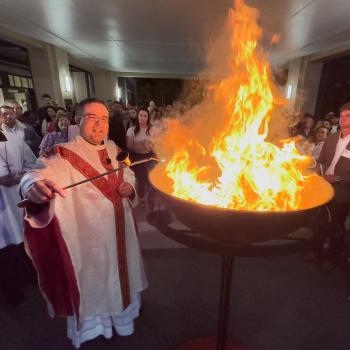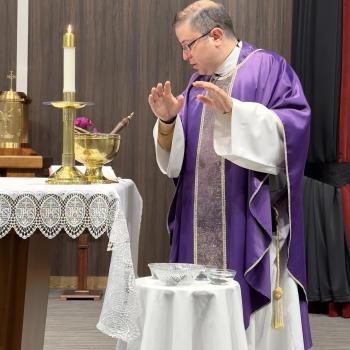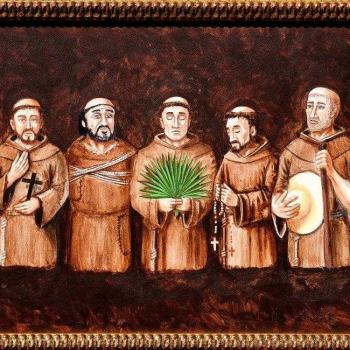If we want to experience more profoundly how much Jesus loves us, how much he desires to be with us, we need to meditate more closely his suffering and his death.
Today’s readings speak of the sufferings of Jesus, but most importantly they relate to us that his sufferings have an infinite value in the eyes of God. His passion and death are not meaningless acts of violence and suffering, but quite the opposite, they are the means of our salvation.
Suffering… it’s quite a mystery – no one likes to suffer, yet we all know it’s inevitable in our lives; we can’t run away from it or avoid it. “We all have pains, we all have sorrows.” We each have a cross to bear.
The prophet Isaiah, writing about 700 years before Christ, described a suffering servant. Chapter 53 of his book, from which we just heard, speaks of a faithful servant of God who takes upon himself the sin and guilt of all people to justify them, to give them salvation. Through his suffering, he restores the relationship between God and humanity.
Who is this suffering servant of Isaiah? The Jewish people say it’s Israel personified – it’s a description of the trails and sufferings of the Jewish people.
Since the very early Church however, Christians have interpreted Isaiah’s suffering servant as a prophecy of the Messiah, of Jesus himself. Jesus is the suffering servant who takes on all our sins and guilt to restore our relationship with God. Isaiah foretold the saving value of Jesus’ suffering – a suffering that was not in vain.
In his suffering, Jesus stands as the mediator between us and God the Father. Being both fully God and fully Man, Jesus offers himself as our sacrifice to God and God accepts it because there is no better or no more perfect sacrifice than God being offered back to God.
Jesus’ death is the perfect and final sacrifice. All the animals sacrificed to God at the Temple of Jerusalem over centuries cannot compare to the sacrifice of God’s only Son back to God.
Jesus is our high priest who intercedes for us before God, who stands before us and God.
Saint Paul reminds us that because of his sufferings, Jesus our high priest, is not a high priest who is unable to sympathize with our weakness, but one who has similarly been tested in every way, like us, yet without sin.
God has come down to earth and has suffered as we suffer – Our God knows what it’s like to suffer as we do.
Jesus did not take away suffering, but rather embraced it when he fully embraced our human condition. He knows what it’s like from his own experience. This is why we can turn to him in our suffering, in our confusion, in our illness or distress. We can surrender our suffering to him because he has promised to be with us and to help us with his grace.
Jesus teaches his apostles in the Gospel that the Christian life is not about getting rid of suffering. It’s rather about embracing it and putting it in perspective: it’s about carrying one’s cross.
Jesus speaks of his upcoming violent death in today’s Gospel passage and tells his apostles they will follow suit.
The Christian life is not about seeking honors and privileges, it’s about giving one’s life for the sake of others as Jesus Himself literally did.
Jesus turns the logic of the world upside down when he says, “whoever wishes to be first among you will be the slave of all. For the Son of Man did not come to be served but to serve and to give his life as a ransom for many.”
Jesus, in his suffering and death, is the perfect servant – serving us, you and me. It’s in his dying that he offers the perfect sacrifice to God and begins a new relationship, a new covenant, between God and us.
Being a Christian is not always easy – look at what happened to our leader and the many early Christians who died for their faith – as Christians we become one with Jesus and are called to follow him even if it causes us discomfort or suffering. We should not be shocked and surprised the world rejects us. Know that Christ is with you, strengthening you with his grace, especially at the Eucharist where we drink his blood that has saved us… “the blood of the new and everlasting covenant” as I will say during consecration.
The same blood that ran down the wood of the cross as he gave his spirit to God, will now run down our own bodies when we drink it, bringing us salvation and strength to die to ourselves, to join our sufferings to those of Christ, and to live for Christ alone.
















